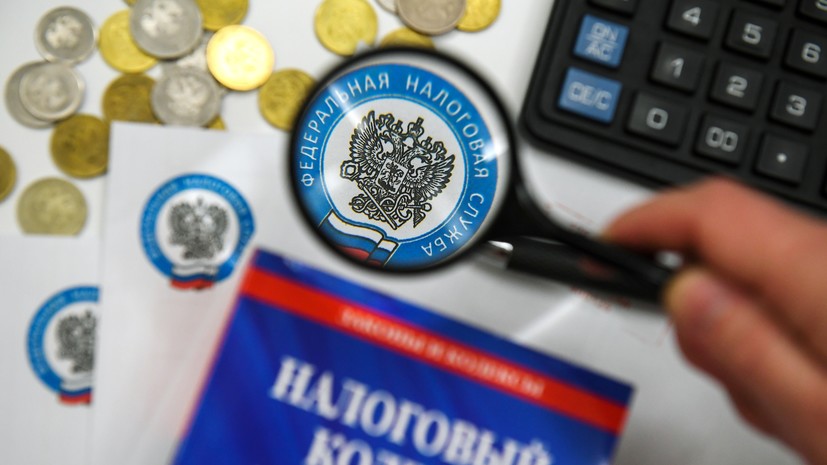Since July 1, 2020, all regions of Russia have the opportunity to introduce a special tax regime for self-employed citizens. The corresponding initiative was previously voiced by President Vladimir Putin during an appeal to the Russians.
“The regime for the self-employed was introduced in our individual subjects of the Federation as an experiment. And this experiment, as we see, is successful. Therefore, from July 1, throughout the country, all regions should have the right to introduce a regime for the self-employed - everywhere, throughout the country. This means that people will be able to officially and calmly work, ”Putin said.
Recall that self-employed include people who work for themselves, receive money for their services from individuals and legal entities, do not have an employer and do not attract additional workers to their activities. Moreover, the annual income of such citizens should not exceed 2.4 million rubles. This is stated on the website of the Federal Tax Service (FTS).
Self-employed pay professional income tax. When working with individuals, its rate is 4%, and when settling with individual entrepreneurs and organizations - 6%.
“Becoming a self-employed entrepreneur is profitable and convenient. For citizens, this means entering the legal field, which allows them to save for retirement, pay minimum taxes and have the right to protect their professional and social interests in court, ”explained Vice President of the All-Russian Public Organization of Small and Medium Enterprises“ Reliance ”in an interview with RT Of Russia ”Pavel Sigal.
Moreover, official registration as self-employed makes it possible to officially confirm income from lending, as well as participate in contests, including public procurement. This was told to RT by TeleTrade chief analyst Mark Goichmann.
From January 1, 2019, Russians began to pay professional income tax in Moscow, the Moscow and Kaluga regions, as well as in the Republic of Tatarstan. Since January 2020, a special tax regime for the self-employed has been launched in another 19 regions.
“At first, the experiment did not arouse enthusiasm in microbusiness. People feared that in this way the state would put their income under control. However, the experience of the pilot regions showed that the majority of citizens with shadow employment still prefer to work in the open. Moreover, tax rates are low, and registration is very convenient, and no additional reporting is required. Gradually, the fear disappeared from the Russians, this can be seen from the statistics, ”Lilia Fedulina, director of market analytics for podelu.ru, told RT.
According to her, initially the authorities hoped that in 2019 about 200 thousand people would be registered as self-employed in Russia. Meanwhile, the final figure was much higher and amounted to about 340 thousand. Moreover, in 2020, the government expected an increase in the number of self-employed to 800 thousand people, but only in the first five months of the year the indicator was very close to the target level.
“Today, over 750 thousand people are registered as self-employed in 23 regions. More than half of them did not declare their income before and did not officially work anywhere. Now more than 2 thousand people are registered daily, ”said Russian Prime Minister Mikhail Mishustin at a meeting on June 29.
Note that, in accordance with the instructions of Vladimir Putin, from July 1, Russians will be able to receive the status of self-employed not from 18, but from 16 years old. According to the president, about 3 million citizens will be able to use this right.
Registered as self-employed Russians automatically receive a tax deduction of 10 thousand rubles. Also, in the context of the coronavirus pandemic, special support measures were provided for such citizens. They are fully refunded the professional income tax for 2019. In addition, this year they are provided with additional tax capital from the state in the amount of one minimum wage (12 130 rubles), which can be used to pay future taxes.
“These people believed the state, believed its guarantees to work in a secure and civilized manner. I believe that such a desire should be supported and even encouraged, ”Vladimir Putin emphasized.
Support for the economy
According to experts, the introduction of a tax on professional income in all regions of Russia will reduce shadow employment and reduce unemployment. In addition, analysts expect improvement in tax collection, which will positively affect the country's budget.
“The volume of economies of Moscow, the Republic of Tatarstan, the Moscow and Kaluga regions, which took part in the experiment in 2019, is about 35% of the country's GDP. In these regions, more than 1 billion rubles were collected. Accordingly, according to the most conservative estimates, the budget will be able to receive more than 3.2 billion rubles from all subjects of the Federation, ”said Ivan Kapustyansky, Forex Optimum Leading Analyst, RT.
According to experts, the funds received by the authorities can be additionally used to support the economy. At the same time, an increase in the number of self-employed can positively affect the planning of Russia's socio-economic policy, says Pavel Sigal.
“For the state, getting out of the shadow of millions of people means not only an increase in tax collection, but also that the authorities will have a more accurate idea of the number of citizens employed in micro-business. As a result, the government will be able to better plan social and economic policies and develop measures to support entrepreneurs and citizens, ”the expert explained.
As Natalia Milchakova, deputy head of the Alpari information and analytical center, told RT, in general, 15-16 million Russians still receive shadow income from individual activities. Meanwhile, according to the expert, the indicator may significantly decrease in the coming years.
“If at least half of these people are officially registered as self-employed, it will be a success for the state both in terms of increasing budget revenues and in terms of changing the mentality of people in the direction of increasing confidence in the state,” concluded Milchakova.

